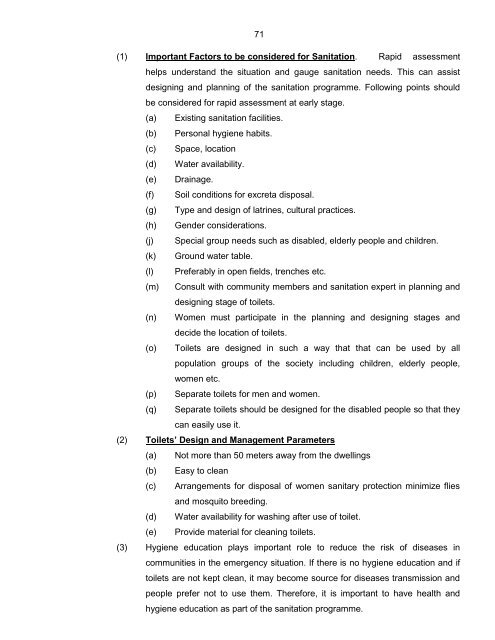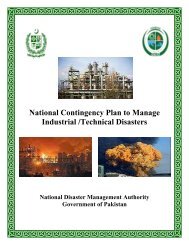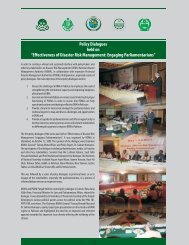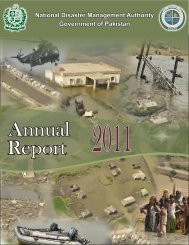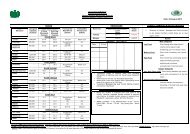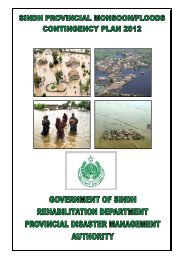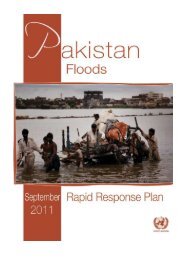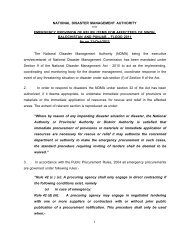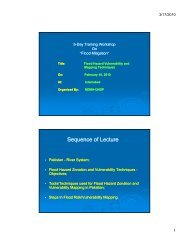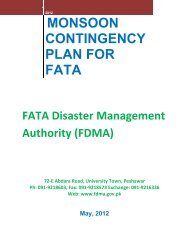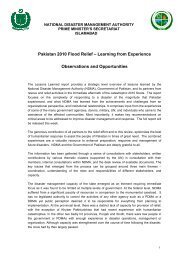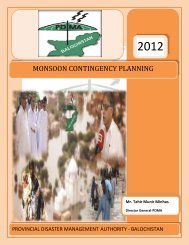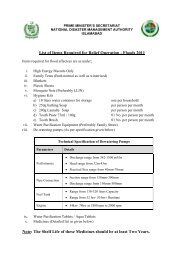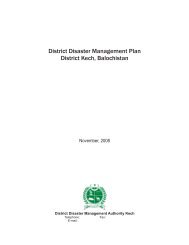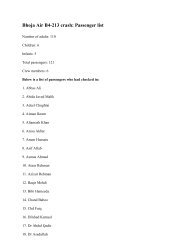National Disaster Response Plan (NDRP) March 2010 - NDMA
National Disaster Response Plan (NDRP) March 2010 - NDMA
National Disaster Response Plan (NDRP) March 2010 - NDMA
Create successful ePaper yourself
Turn your PDF publications into a flip-book with our unique Google optimized e-Paper software.
71<br />
(1) Important Factors to be considered for Sanitation. Rapid assessment<br />
helps understand the situation and gauge sanitation needs. This can assist<br />
designing and planning of the sanitation programme. Following points should<br />
be considered for rapid assessment at early stage.<br />
(a) Existing sanitation facilities.<br />
(b) Personal hygiene habits.<br />
(c) Space, location<br />
(d) Water availability.<br />
(e) Drainage.<br />
(f) Soil conditions for excreta disposal.<br />
(g) Type and design of latrines, cultural practices.<br />
(h) Gender considerations.<br />
(j) Special group needs such as disabled, elderly people and children.<br />
(k) Ground water table.<br />
(l) Preferably in open fields, trenches etc.<br />
(m) Consult with community members and sanitation expert in planning and<br />
designing stage of toilets.<br />
(n) Women must participate in the planning and designing stages and<br />
decide the location of toilets.<br />
(o) Toilets are designed in such a way that that can be used by all<br />
population groups of the society including children, elderly people,<br />
women etc.<br />
(p) Separate toilets for men and women.<br />
(q) Separate toilets should be designed for the disabled people so that they<br />
can easily use it.<br />
(2) Toilets’ Design and Management Parameters<br />
(a) Not more than 50 meters away from the dwellings<br />
(b) Easy to clean<br />
(c) Arrangements for disposal of women sanitary protection minimize flies<br />
and mosquito breeding.<br />
(d) Water availability for washing after use of toilet.<br />
(e) Provide material for cleaning toilets.<br />
(3) Hygiene education plays important role to reduce the risk of diseases in<br />
communities in the emergency situation. If there is no hygiene education and if<br />
toilets are not kept clean, it may become source for diseases transmission and<br />
people prefer not to use them. Therefore, it is important to have health and<br />
hygiene education as part of the sanitation programme.


